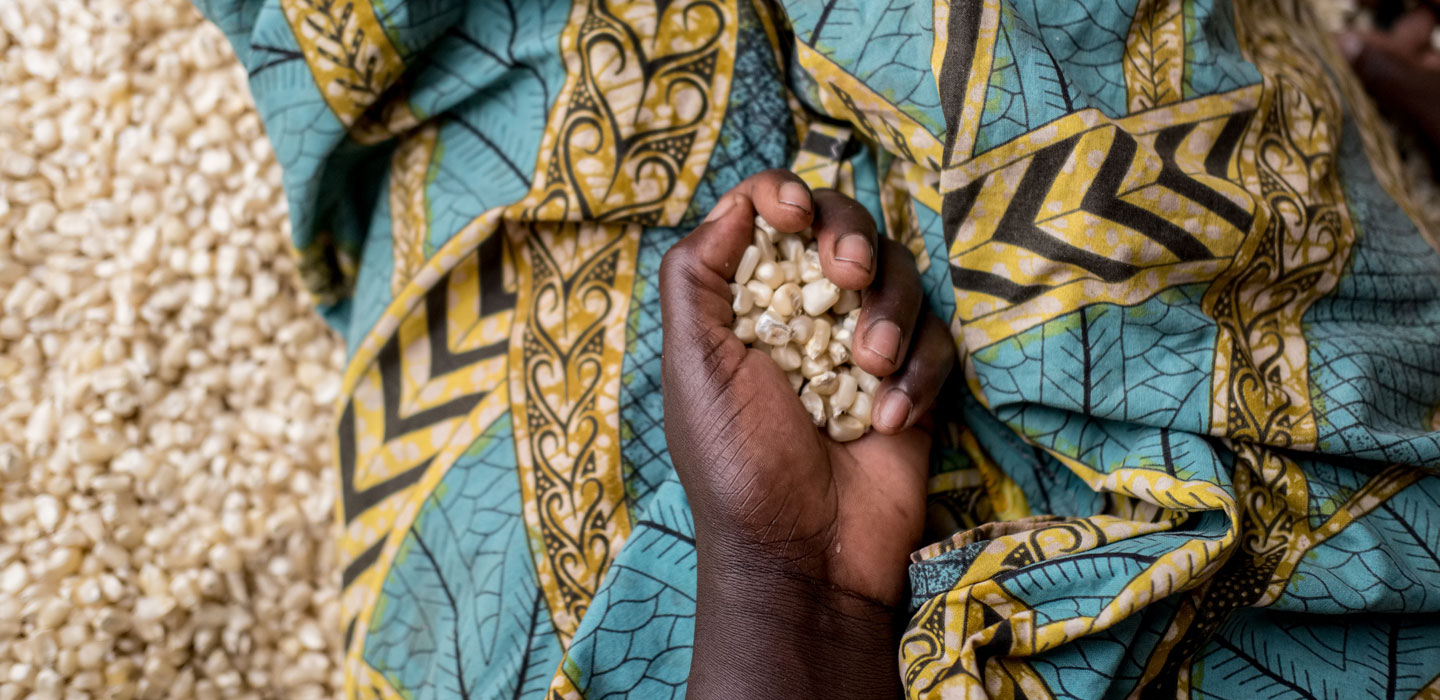How the war in Ukraine impacts the world
IFAD Asset Request Portlet
Asset Publisher
How the war in Ukraine impacts the world
Estimated reading time: 3 minutes
Conflict and food insecurity go hand-in-hand. Stable food systems and sustainable development are simply not possible without peace. As the war in Ukraine continues, IFAD is gravely concerned not only about the humanitarian crisis, but also about the impact rising prices and shortages of staple crops will have on the world’s most vulnerable people.
The ripple effects of war in a fragile global context
In a globalized world, conflict in one region has impacts across the planet.
Ukraine and Russia are major global suppliers of wheat, gas, fertilizers, and other important commodities. Supply chain disruptions are already having negative economic and financial impacts, particularly in developing countries that are also struggling to cope with COVID-19 and climate change. Fluctuations in supply and price will further increase debt burdens, limit growth prospects, and disrupt global food systems.
Worryingly, conflict in one region can often spark unrest in another as food insecurity and inflation exacerbate poverty and social instability.
Price shocks lead to food insecurity
Russia and Ukraine account for about a third of global wheat exports, while Middle Eastern and North African countries import more than half of their cereal supplies from the region. Eighty-five per cent of Egypt’s wheat imports come from the Black Sea region alone.
In countries where production is insufficient to cover food needs, the price hikes resulting from restricted exports threaten to exacerbate hunger issues.
Many vulnerable countries may be unable to cope with long-lasting shocks. Lebanon imports 80 per cent of its wheat from Russia and Ukraine. Due to the blast in Beirut’s port in 2020, which destroyed the country’s major grain silos, Lebanon can only store about one month’s worth of wheat at a time. With 22 per cent of families already food insecure, a protracted war in Ukraine will have severe consequences in Lebanon.
In the Sahel, in countries such as Niger, Chad, Burkina Faso, and Mali, up to half the population live in extreme poverty. Conflict compounds trade barriers, reduced food imports, climate vulnerabilities, and COVID-19 impacts to create a perfect storm for food insecurity in this already highly vulnerable region.
Agriculture elsewhere is threatened
Disruptions in global supply chains of agricultural inputs, such as fertilizer and gas, due to the war could have long-term negative consequences for small-scale producers, particularly as they start a new planting season and face fertilizer or natural gas shortages and price hikes.
For example, two-thirds of people in the Central African Republic live in poverty. A major constraint for the country’s agricultural sector is poor agricultural inputs. Spikes in prices will impact use and yields, placing an added burden on the country’s food security and poverty reduction.
Similarly, in Somalia, an estimated 3.8 million people are already severely food insecure. The costs of electricity and transportation, which have risen due to increases in fuel prices, have had a disproportionate impact on small-scale farmers who rely on irrigation-fed agriculture powered by diesel engines for their survival.
How the global economy is affected
The war in Ukraine risks severe negative effects on debt, global growth prospects, and exchange rates. The OECD estimates that global economic growth in 2023 will be at least 1 percentage point lower than projected, while global inflation could rise even further by about 2.5 percentage points.
Price hikes due to the conflict are increasing the debt burden and reducing the development budget of many countries already stricken by the COVID-19 pandemic. These economic impacts reinforce the vicious cycle of indebtedness and low productivity.
IFAD’s experience and response
IFAD’s initial response to the war in Ukraine will be to protect the livelihoods and productive assets of small-scale farmers and the rural poor, ensuring they can meet upcoming planting and harvesting seasons, and securing their immediate food security. This means ensuring producers have access to key resources for production, financial resources, infrastructure, and information.
Our recent experience in responding to the COVID-19 pandemic, as well as during previous food crises, underscores the importance of ensuring that households have immediate access to resources to help people build resilience as prices go up and markets are disrupted.
As a specialized United Nations agency and international financial institution, IFAD is uniquely placed to do this. The Fund has an extensive history of investing in building medium and long-term resilience, using data and existing projects as the basis for short-term, focused responses.
Note: All figures are accurate as of 25 March 2022.
Read our press release on the food security impacts of the Ukraine conflict in the Near East North Africa region.
Read IFAD President’s response to the conflict.
Publication date: 05 April 2022